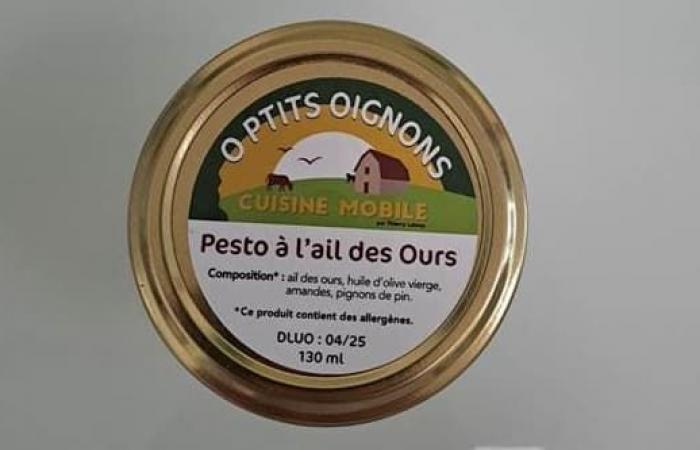Five people were hospitalized on Tuesday, September 10, with symptoms suggestive of botulism. The producer of the artisanal wild garlic pesto preserves, potentially responsible for the poisoning, said he was “sincerely sorry for this situation.”
Five people were hospitalized in intensive care or placed in intensive care on Tuesday, September 10 in Indre-et-Loire due to symptoms suggestive of botulism.
A serious neurological condition caused by a very powerful toxin that develops in particular in poorly preserved foods, according to the Ministry of Health. In this case, it is a “wild garlic pesto” sold in cans under the brand name “Ô petitsoignons” that could have generated this disease.
“Following a case of botulism, the wild garlic pesto that I produce may be the cause, a press release has been sent pending the analysis results,” wrote the manager of the company Ô petitsoignons, Thierry Leloup, on Facebook.
If it is not “confirmed”, he states a “strong suspicion”.
“I am listening to you and will pass on these results as soon as possible,” he said.
Thierry Leloup said he was “sincerely sorry for this situation” and expressed “all (his) compassion for the group of people hospitalized”.
“Lack of control of the sterilization process”
The Directorate General of Health (DGS) indicated in a press release that “the investigations carried out showed the lack of control of the sterilization process of these preserves.”
“Food remains were recovered and will be analyzed by the CNR anaerobic bacteria and botulism (Institut Pasteur Paris) for biological confirmation of botulism,” the press release continues.
The canned goods sold under the brand name “Ô petitsoignons” were sold at various events and fairs in the Indre-et-Loire department. Anyone in possession of these products is asked to throw them away.
Those who have consumed it are “called upon to be extremely vigilant and to consult a doctor in the event of symptoms (vision problems, difficulty swallowing, dry mouth, difficulty speaking)”, the Ministries of Health and Agriculture indicate in a press release.




